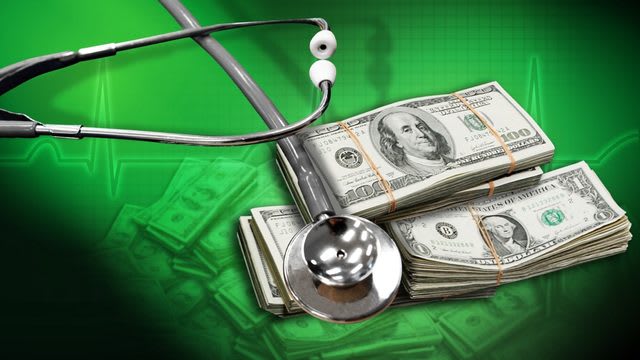TALLAHASSEE, Fla. – Health care costs in Florida are under a microscope as House Speaker Jose Oliva pushes an ambitious goal of scaling back state health spending.
But Oliva’s promises to lower health-care costs have not prevented House and Senate members from requesting money for everything from hospital construction projects to increased access to medication-assisted treatment for opioid addiction to providing care to survivors of human trafficking.
Recommended Videos
Lawmakers have submitted hundreds of millions of dollars in funding requests for health-care related projects during the legislative session that starts March 5. The proposals are filed for communities across the state and target programs for poor, elderly and disabled Floridians and people with substance-abuse disorders and mental-health needs.
One proposal, for example, would provide $10 million to UF Health Jacksonville hospital to help renovate its trauma center, while other proposals would send $1.6 million to Doctors Memorial Hospital in Bonifay for a rural health clinic and $4.2 million to Mount Sinai Medical Center in Miami Beach to redesign space to accommodate four additional generators.
The News Service of Florida reviewed hundreds of funding requests that were submitted by lawmakers and labeled as being for health and human services. House and Senate committees and budget negotiators ultimately will decide during the session whether the proposals will be funded in the 2019-2020 budget.
As of Monday, more than $223 million had been requested by senators for 178 different proposals, according to a tally maintained by Senate budget staff.
Sen. Aaron Bean, a Fernandina Beach Republican who chairs the Senate Health and Human Services Appropriations Subcommittee, said the number of requests will continue to climb.
“I think it’s going to be a huge number,” Bean said .
Bean said he’s been warning members that they could be disappointed given the state’s latest financial outlook.
“It’s going to be a challenge to meet the needs of everything for health care,” he said.
State economists met last week to analyze Medicaid enrollment and spending and to develop estimates that lawmakers will use in drafting the budget for the fiscal year that starts July 1.
Economists concluded that continuing to run Medicaid at current levels will cost $28.1 billion in the upcoming fiscal year. That means lawmakers would need to come up with $164.2 million more in state money than what they currently are spending if they want to avoid cutting programs.
The most-current projections were higher than what was originally estimated. Economists attributed the difference to an increase in the number of patients being served in Medicaid program and to higher-than-anticipated payments for the Medicaid managed-care program and community mental-health services.
The requests for more funding also come as House leaders focus on driving down overall health-care costs. Oliva wants to lower costs by increasing the numbers of providers who can offer care and giving patients alternatives to hospitals.
During public appearances, Oliva often bemoans the amount of state health-care pending. He says that 48 percent of the state’s overall budget will be spent on health care, a broad collection of costs that include everything from state employee health-insurance to prison health to Medicaid.
Bryan Cherry is a lobbyist for Doctors Memorial Hospital, which has put in two requests for funding this year. Cherry said he is aware of Oliva’s concerns about health care spending but said he hopes he can win over skeptical legislators.
“From everything I’ve been told, the speaker views rural hospitals in a different category, if you will,” he said.
One of the requests from Doctors Memorial Hospital is $1.6 million to help construct a 6,000-square-foot medical office facility to serve pediatric cardiologist specialists’ needs in Holmes County.
“It is a critical access rural hospital,” he said. “There’s a critical need for it.”
Lobbyist Paul Hawkes, who is trying to get money for UF Health Jacksonville, is also cognizant of the speaker’s sentiment and acknowledged it could cast a shadow during the session. Hawkes job is to convince the Legislature to sign off on proposals that, if approved, could mean $43 million in increased Medicaid funding for the hospital without additional state funds.
Noting that the facility has thin operating margins and provides large amounts of Medicaid and charity care, Hawkes said he’s confident he can make a persuasive argument for the increased spending authority, which involves using local and federal money but shows up in the state budget.
“The speaker has never said he’s opposed to important health care sending or quality health care spending,” said Hawkes, a former lawmaker. “He said he was opposed to more wasteful health care spending.”
Sprinkled along with requests for money dedicated to hospitals and opioid treatment is a request to help pay for the Ms. Senior Florida pageant. The pageant is for women 60 and older of “good moral character,” according to a website promoting the event. The contestants must compete in a talent competition and agree to don evening wear.
“It’s an activity for the older people in this community,” Sen. Oscar Braynon, D-Miami Gardens, said of his $500,000 funding request .
“It’s not about the actual beauty pageant,” he said. “it’s about giving these elderly people something to do.”


